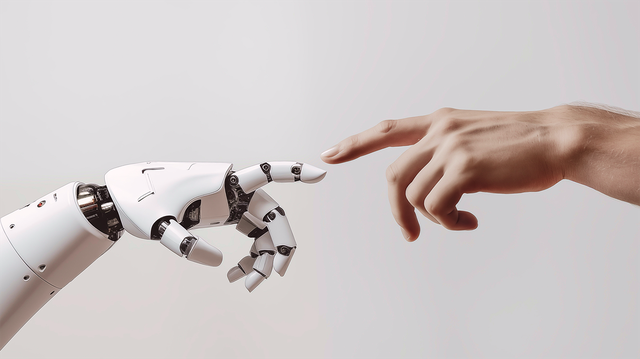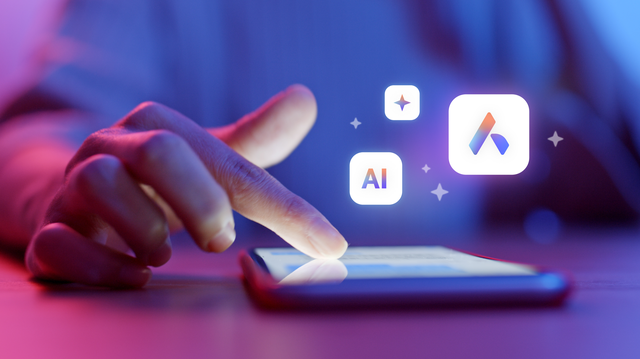Will AI take your job? A clear-eyed look at AI and global workforce transformation

"I just spent 20 minutes talking to a chatbot, and it solved my issue better than any human rep I’ve ever spoken to."
You’ve probably heard someone say that recently. Maybe you’ve said it yourself. Whether it’s a virtual assistant fixing your internet outage, AI suggesting edits in your documents, or a smart car almost driving itself, artificial intelligence is no longer science fiction. It is in your phone, your browser, and your office.
This leads to the big question on everyone’s mind. Will AI take my job?
The short answer is maybe—but not in the way most headlines suggest.
To understand what AI means for your job and the global workforce, we need to look beyond the hype and panic. AI is already transforming work. It is important to examine which roles are most affected and how individuals and organizations can prepare for what is next.
How AI is already reshaping work
AI is not a single tool. It is a broad set of technologies that can understand, predict, generate, and automate. The impact varies by task, role, and industry.
The most obvious changes are happening in jobs involving repetitive processes, pattern recognition, or large volumes of data. Even creative and strategic fields are beginning to feel the shift.
Here are some examples of how AI is already used in everyday products and workplaces.
Customer support
Many companies use AI-powered chatbots as the first point of contact for customer service. Tools such as Zendesk’s AI assistant and Intercom’s Fin handle a high volume of queries around the clock. They offer fast answers and allow human agents to focus on more complex issues.
These systems improve response times and consistency. For customers, the experience is often better, not worse.
Content creation
Writers, marketers, and designers are using generative AI to speed up their work. Tools like Adobe Firefly, Canva’s Magic Design, and ChatGPT help users brainstorm ideas, draft content, and create visuals in minutes.
AI does not replace the need for human creativity, but it acts as a powerful co-pilot. The line between manual creation and AI-assisted production is becoming increasingly blurred.
Code development
Software engineers have access to AI coding assistants such as GitHub Copilot and Amazon CodeWhisperer. These tools suggest entire blocks of code, identify bugs, and explain functions in natural language.
Developers still need deep knowledge to build and maintain systems. However, AI helps them work faster, catch errors earlier, and learn new frameworks more efficiently.
Web browsing
Even internet browsing is evolving with AI. The Opera browser, for example, has introduced several innovations including the first built-in ad blocker, free VPN, and integrated messaging. Opera’s browser AI allows users to summarize web pages, generate content, and ask questions in real time, right in the browser.
This reflects a broader shift. The internet is becoming adaptive, responsive, and personalized.
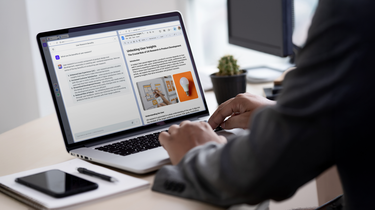
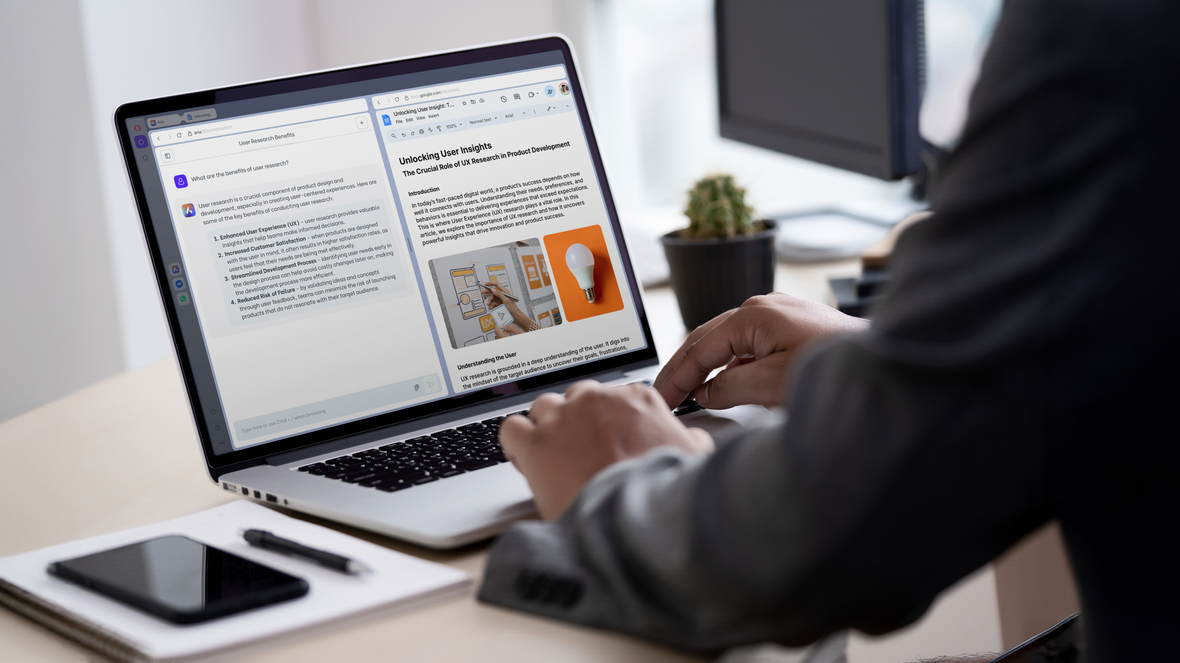
Jobs most vulnerable to AI disruption
Not every job is equally exposed to automation. It is helpful to think in terms of tasks rather than job titles.
AI excels at narrow, defined tasks involving logic, pattern recognition, or data handling. Jobs made up entirely of such tasks are more likely to be transformed or replaced.
A 2023 study by Goldman Sachs estimates that around 300 million jobs globally could be affected by automation, especially in white-collar sectors.
Here are a few categories at higher risk:
Routine administrative roles
Tasks like data entry, scheduling, report generation, and basic bookkeeping are increasingly automated. Many of these roles may shrink or change significantly.
Basic customer service
Entry-level support positions that rely on scripted responses are being replaced by chatbots and automated ticketing systems.
Simple content production
AI can write SEO blog posts, transcribe meetings, and create basic marketing copy. While the results may lack human nuance, they are often fast, scalable, and sufficient for many routine needs.
Even in these areas, the trend is more about transformation than elimination. Jobs are evolving, not simply disappearing.


Jobs AI is less likely to replace
Many roles remain difficult or impossible for AI to fully automate. These usually involve empathy, judgment, adaptability, and other distinctly human traits.
Healthcare and caregiving
AI can support diagnostics and scheduling. However, it cannot replace a nurse’s bedside manner or a therapist’s emotional insight. These jobs depend on trust and human connection.
Skilled trades
Roles such as electricians, plumbers, and carpenters involve physical dexterity and unpredictable environments. These are difficult for AI to simulate or navigate.
Creative leadership
AI may generate ideas, but it cannot define vision, manage ambiguity, or lead a team. Creative directors, strategists, and entrepreneurs rely on types of thinking that machines cannot replicate.
Education
AI can tutor and personalize content. Still, human educators provide encouragement, feedback, and flexibility—especially important for young learners or complex topics.


What AI means for your career path
For most people, AI will not take your job—but someone using AI might.
This is the essential shift. AI acts as a force multiplier. Workers who learn to use it effectively will become more efficient, valuable, and adaptable in fast-changing industries.
You do not need to become a programmer. However, understanding how AI fits into your field and how to work with it is essential.
Consider these principles:
Think in tasks, not titles
Break your role into specific tasks. Identify those that AI can assist with, and those that require your unique judgment. This is where your opportunities lie.
Learn to prompt and evaluate
Knowing how to ask AI the right questions is an emerging skill. Equally important is the ability to evaluate AI’s output. Can you detect errors, biases, or missing information?
Stay curious, not defensive
AI is not just a threat. It is also a tool for learning and growth. People who remain curious, experiment with tools, read trends, and collaborate with others will thrive.
How companies are adapting
Organizations are evolving too. AI adoption is not only about reducing costs. It is about enabling new capabilities and staying competitive.
Some companies are retraining staff and creating hybrid roles such as AI editor or prompt strategist. Others are redesigning workflows for human-machine collaboration.
At Opera, this philosophy shapes product design. The goal is to create tools that adapt to user needs. AI is not replacing human input. It is enhancing it.
With Opera AI, users get AI assistance without switching tabs or apps. It is built into the experience, making work and exploration more seamless.
A balanced future of work
So, will AI take your job?
It might change it. It might help you do it better. It might even create new roles that do not yet exist.
AI is not a wave crashing over us. It is a tide we are learning to navigate. That requires awareness, flexibility, and a willingness to rethink how we define work.
For individuals, success will depend on adaptability. For organizations, the challenge is to integrate AI with care—respecting human expertise and fostering long-term skills.
The robots are not taking all our jobs. But they are becoming part of them. How we respond will shape the next era of work and human potential.
Related articles
You deserve a better browser
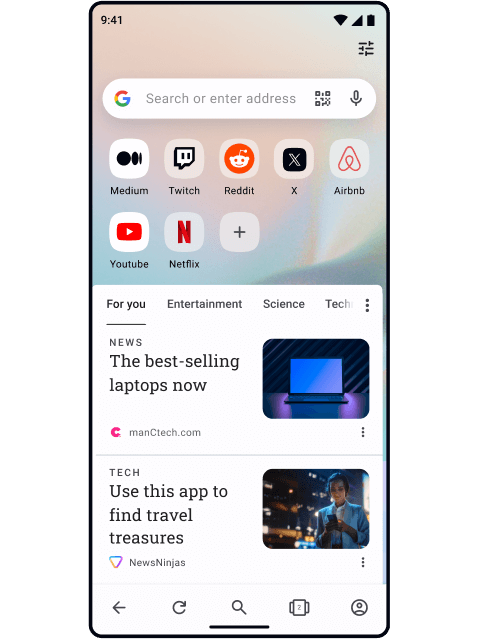
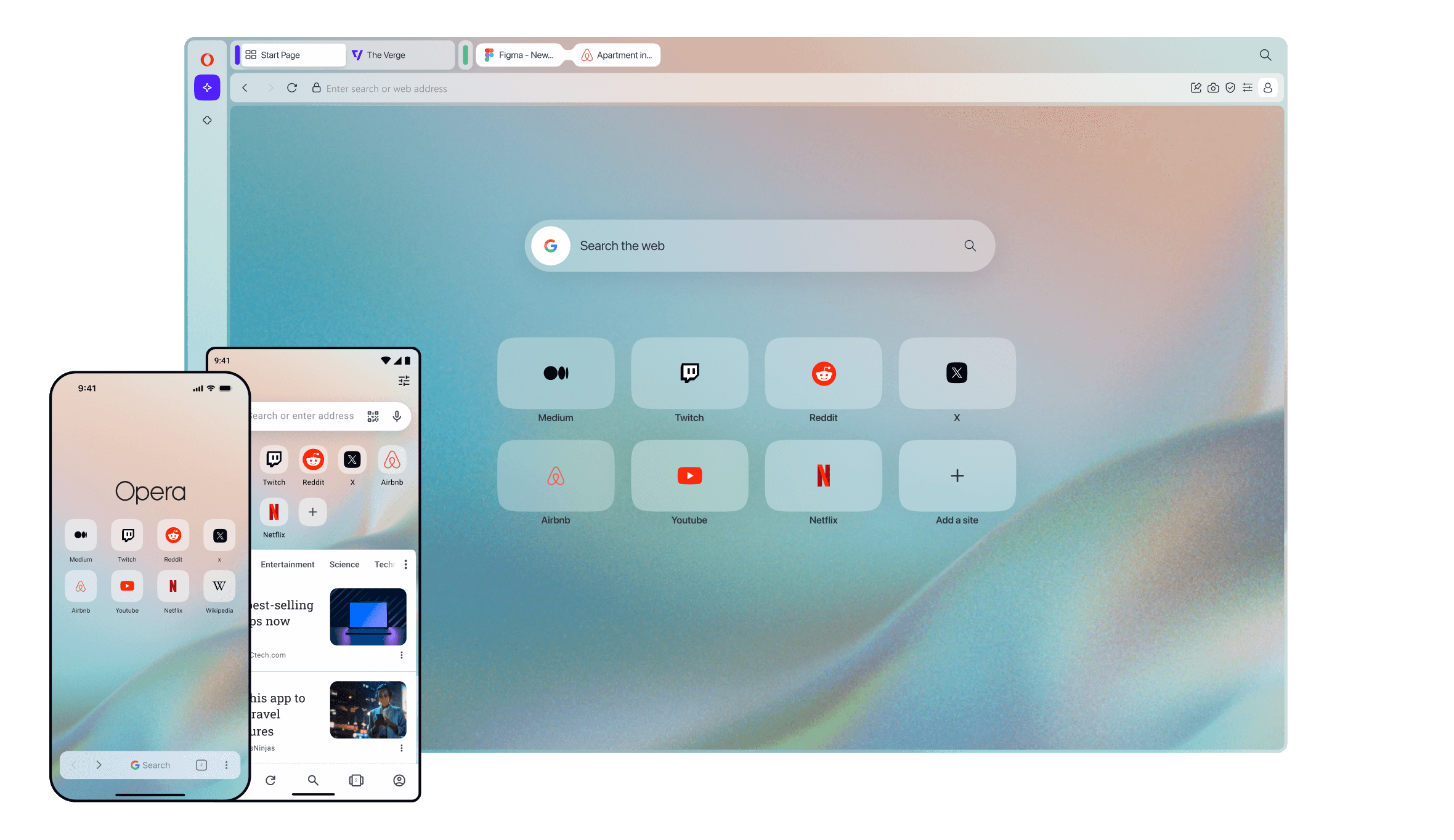
Press Contacts!
Our press team loves working with journalists from around the world. If you’re a member of the media and would like to talk, please get in touch with us by sending an email to one of our team members or to press-team@opera.com


